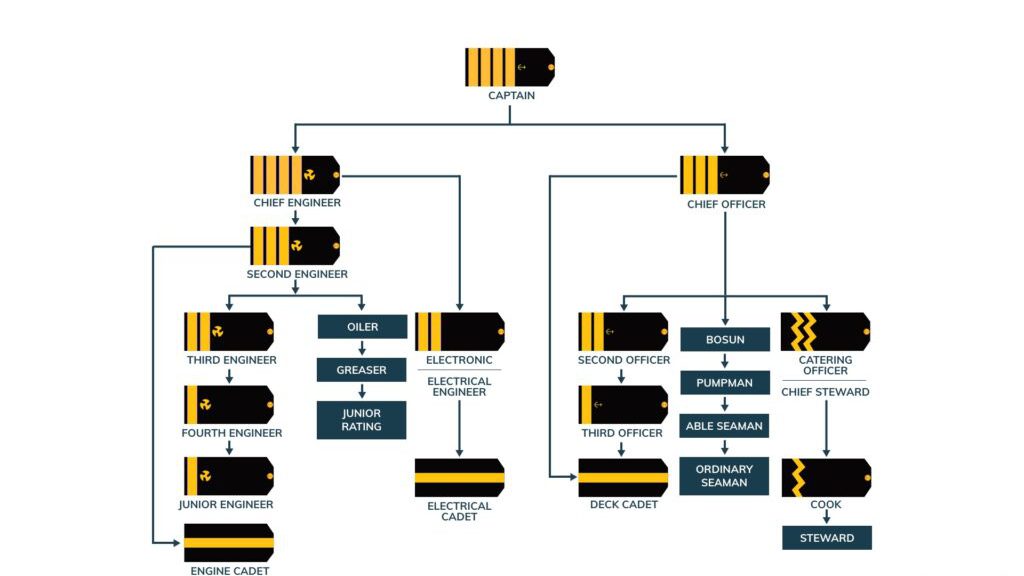
If you’re passionate about a career in the Merchant Navy, one of the first decisions you’ll face is choosing between the Graduate Marine Engineering (GME) course and the Diploma in Nautical Science (DNS) program. This decision shapes whether you’ll work in the engine room or on the navigation bridge of a ship. A thorough GME DNS comparison helps you pick a course aligned with your skills, interests, and career goals.
In this guide, SkillsStation, India’s leading name in best merchant navy coaching, breaks down the differences between these two flagship pre-sea programs, helping you make an informed decision between GME and DNS.
What Is DNS (Diploma in Nautical Science)?
The DNS course is a 1-year residential program that leads to a career on the Deck side of a ship. After DNS, cadets go onboard as Deck Cadets and eventually progress to 2nd Officer, Chief Officer, and ultimately Captain.
DNS is typically pursued after completing 12th grade (PCM) or B.Sc., and it’s approved by DG Shipping and affiliated with IMU (Indian Maritime University).
What Is GME (Graduate Marine Engineering)?
The GME course is a 1-year pre-sea training program for graduates in Mechanical or Naval Architecture. It’s the gateway to a career on the Engine side of a vessel. GME cadets go onboard as Junior Engineers and can rise to 4th Engineer, 2nd Engineer, and Chief Engineer.
A valid GME DNS comparison requires understanding the job functions, training routes, and career growth of both pathways.
GME vs DNS: Detailed Comparison Table
| Parameter | DNS | GME |
|---|---|---|
| Career Path | Deck Officer (Navigation) | Marine Engineer (Technical Ops) |
| Eligibility | 12th PCM / B.Sc. | B.E./B.Tech in Mechanical/Naval Arch. |
| Duration | 1 year pre-sea + 18 months sailing | 1 year pre-sea + 6-9 months sailing |
| Starting Rank | Deck Cadet | Junior Engineer |
| Top Rank | Captain | Chief Engineer |
| Sponsorship | Highly recommended | Mandatory in most cases |
| Subjects | Navigation, Meteorology, Rules of the Road | Thermodynamics, Mechanics, Marine Systems |
| Vision Requirement | 6/6 in both eyes, colour vision mandatory | Relaxed, colour vision is not always critical |
| Course Fees | ₹6–9 Lakhs (approx.) | ₹4–7 Lakhs (approx.) |
| Job Role | Navigating ship, cargo ops, and watches | Engine maintenance, systems ops |
Understanding this GME DNS comparison helps candidates choose a stream that matches both their academic background and interests.
Key Differences in Job Roles
DNS Job Roles:
Watchkeeping on the bridge
Navigation and chart plotting
Cargo and ballast operations
Deck maintenance and mooring
🔧 GME Job Roles:
Engine room maintenance
Operation of generators, pumps, and HVAC systems
Fuel consumption monitoring
Machinery troubleshooting
A major part of the GME DNS comparison lies in determining whether you are more inclined toward navigation or engineering.
Career Growth and Promotion Timeline
DNS Cadets:
18 months sea time → 2nd Mate CoC
2nd Officer → Chief Officer (after 18 months + CoC)
Chief Officer → Captain (after ~2 years + Master CoC)
GME Cadets:
6–9 months sea time → Class IV (4th Engineer)
4th → 3rd → 2nd Engineer (after Class II CoC)
Chief Engineer after 24+ months sailing and Class I CoC
Both streams offer strong promotion paths, but the time to top rank may vary. This aspect should factor into your GME DNS comparison.

Entry Requirements: DNS vs GME
1. DNS(Diploma in Nautical Science)
12th PCM with a minimum 60%
English 50%
Age limit: 17–25 years
Eyesight: 6/6, no color blindness
2. GME (Graduate Marine Engineering)
B.E./B.Tech (Mech/Naval Arch) with 50%
English 50% in 10th/12th
Age limit: 28 years
Eyesight: 6/12 acceptable, mild correction allowed
If you have a strong mechanical background, GME is ideal. For those inspired by ship navigation and control, DNS is the way to go. A smart GME DNS comparison should consider these entry points.
How SkillsStation Helps You Choose Smartly
At SkillsStation, we simplify the GME DNS comparison process with:
Personalised career counselling
Eye test and eligibility pre-screening
Sponsored course options and admission assistance
Tie-ups with top maritime colleges in India
Free webinars on deck vs engine career options
With our reputation as the best merchant navy coaching provider, we ensure you choose the course that’s right for you—not just what seems popular.
Tips to Make the Right Choice
Consider your academic strength: Math/Physics vs. Mechanics
Think about your working style: Team navigation vs. technical repairs
Look at vision requirements: Strict in DNS, relaxed in GME
Review sponsorship availability: DNS sponsorships are more frequent
Evaluate promotion timelines and long-term goals
When doing a GME DNS comparison, remember—both paths are rewarding, but they suit different mindsets.

Conclusion
Choosing between DNS and GME is a career-defining decision. A proper GME DNS comparison considers everything from academic eligibility to job responsibilities, medical fitness, and career goals. With the right insights and mentorship, your journey into the Merchant Navy becomes clear.
Let SkillsStation, India’s leader in best merchant navy coaching, guide your decision with real-world expertise, updated course options, and long-term career planning that works at sea and ashore.
